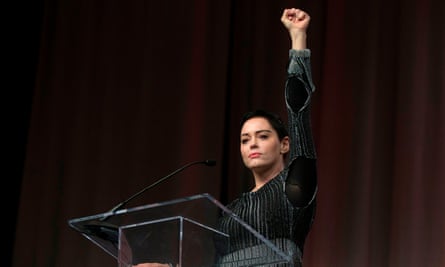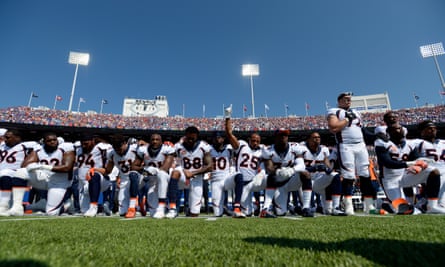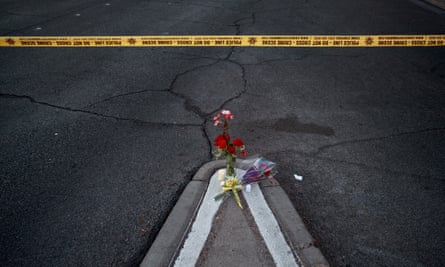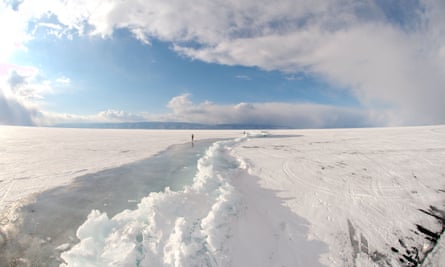Across the turkey and cranberry sauce, your most opinionated relative waits, armed by social media for a yearly ritual: the Thanksgiving duels over current events, politics, and culture – the conversations that swing between asking for the stuffing and telling your family to stuff it.
But before you set the table, you can prepare too, with some of the year’s best writing, of which you can find a buffet below.
Five reads on the Trump administration
How to Get Rich in Trump’s Washington
Nick Confessore in the New York Times Magazine. The swamp gains a few new denizens, with the help of New Zealand, Saudi Arabia and a cohort of ex-campaign officials

The Reclusive Hedge Fund Tycoon Behind the Trump Presidency
Jane Mayer in the New Yorker. An examination of the enormous influence and strange beliefs of Robert Mercer, the billionaire behind the president’s former chief strategist, Steve Bannon, and the website Breitbart News.
This Is What It Looks Like When the President Asks People to Snitch on their Neighbors
Daniel Rivero and Brendan O’Connor in Splinter. Immigration and Customs Enforcement has a hotline it wants Americans to call. The records are revealing.
Why the Scariest Nuclear Threat May Be Coming From Inside the White House
Michael Lewis in Vanity Fair. Dancing with the nuclear codes, and Rick Perry, in the Department of Energy.
The State of Trump’s State Department
Julia Ioffe in the Atlantic. A diplomatic exodus and cafeteria anxiety in the heart of American foreign policy.
Five reads on sexual harassment

The Impunity of Powerful Men and Limits of Power
Jia Tolentino in the New Yorker. In a pair of pieces, Tolentino wrestles with the relationships between speech about sexual assault and harassment, the powerful men who abuse their power, and the struggle to realize change.
The Men You Meet Making Movies
Sarah Polley in the New York Times. “When they were spoken out loud, it was impossible to reframe them any other way. This is how we’d normalized the trauma, tried to integrate it, by making comedy out of it.”
Your Reckoning. And Mine
Rebecca Traister in New York magazine. “The truth is, the risk of exposure that makes us feel anxious about the well-being of our male friends and colleagues – the risk of being named and never recovering – is one of the only things that could ever force change.”
What Do We Do with the Art of Monstrous Men
Claire Dederer in the Paris Review. “Certain pieces of art seem to have been rendered unconsumable by their maker’s transgressions – how can one watch The Cosby Show after the rape allegations against Bill Cosby?”
Five reads on race in America

The Nationalists’ Delusion
Adam Serwer in the Atlantic. In the early 1990s, a Ku Klux Klan leader ran surprisingly well for a Louisiana Senate seat. Asked for comment, a businessman from Queens took note: “It’s anger. I mean, that’s an anger vote.”
John Kelly’s Bizarre Mythology of the Civil War
Jelani Cobb in the New Yorker. The United States was founded in compromise with slavery. The civil war did not end hostilities.
Colin Kaepernick Has a Job
Rembert Browne in Bleacher Report. Although the quarterback proved an unwilling subject, his activism took on a story of its own.
Two schools in Mississippi – and a lesson in race and inequality in America
Jamiles Lartey in the Guardian. On average, US schools are more segregated in 2017 than they were 45 years ago, with consequences starkly apparent.
Sports and Politics Collide in Trump’s America
The Ringer. A running series on the president’s feud with NFL players and ties to owners, activism in the NBA and the end of a “stick to sports” philosophy.
Three reads on guns

Domestic violence and guns: the hidden crisis ending women’s lives
Lois Beckett in the Guardian. What research is done on gun violence shows a clear and frighteningly common factor: domestic violence, almost always committed against women.
Inside the minds of American mass shooters
By Roxanne Dunbar-Ortiz in the Guardian. Gathering up investigations, statistics and the unusual history of the second amendment, Dunbar-Ortiz examines mass shooters in an excerpt from her book, Loaded: a disarming history of the second amendment.
The right to bear arms: what does the second amendment really mean?
By Alan Yuhas in the Guardian. The amendment is a mess of commas and clauses. The supreme court tried for 200 years to ignore it.
Four reads on America

The Family that Built an Empire of Pain
By Patrick Radden Keefe in the New Yorker. The Sackler family, New York billionaires and philanthropists, have amassed their fortune by selling some of the most popular and addictive drugs in America, legally.
The American War
By Alyssa Rosenberg in the Washington Post. A series of interviews with Ken Burns and Lynn Novick, the makers of a documentary on the Vietnam war, on race, patriotism, protest and tragedy.
Love’s Road Home
By CJ Chivers in the New York Times. The story of Sam Siatta, a former marine struggling with PTSD, and Ashley Volk, the woman who carried him through his long road to the courtroom, and Terrence Lavin, the judge who met them there.
We Should Have Seen Trump Coming
By Ta-Nehisi Coates in the Guardian. “The history breaks the myth. And so the history is ignored, and fictions are weaved into our art and politics that dress villainy in martyrdom and transform banditry into chivalry.”
Four reads on the world

This Is What A 21st-Century Police State Really Looks Like
By Megha Rajagopalan in BuzzFeed. For millions of Chinese citizens, the authorities are experimenting with the tools and weapons of dystopia.
Killer, kleptocrat, genius, spy: the many myths of Vladimir Putin
By Keith Gessen in the Guardian. Framed as a Bond villain by many in American media, a nouveau tsar by admirers and a mob boss by critics, the man in the middle of the Kremlin has amassed many myths.
The war against Pope Francis
By Andrew Brown in the Guardian. The culture war inside Catholicism, between conservatives and liberals, has some priests on the verge of accusing the pope of heresy.
The Uncounted
By Azmat Khan and Anand Gopal in the New York Times. The US military killed Basim Razzo’s wife, daughter, brother and nephew. It took over a year for Razzo to get into a room with American officials, who had not counted his family civilians.
Five reads on tech and science

Mysterious object confirmed to be from another solar system
By Stuart Clark in the Guardian. It’s red, named ’Oumuamua, and an apparent asteroid.
‘Our minds can be hijacked’: the tech insiders who fear a smartphone dystopia
By Paul Lewis in the Guardian. Without glancing at Twitter or Facebook or that text or news alert or Snapchat, can you read this story in one sitting?
How One Woman’s Digital Life Was Weaponized Against Her
By Brooke Jarvis in Wired. How the internet, vast and invasive, can become a terrifying means to consume real lives.
The Zombie Diseases of Climate Change
By Robinson Meyer in the Atlantic. Last year a reindeer killed in 1941, thawing, caused an outbreak of anthrax in Siberia. Beneath the tundra’s permafrost, far more ancient microbes and viruses wait.
How Facebook Figures Out Everyone You’ve Ever Met
By Kashmir Hill in Gizmodo. You have a shadow profile, even if you’re not on Facebook, and Facebook doesn’t want to talk about it.
Welcome to Pleistocene Park
By Ross Anderson in the Atlantic. Russian scientists have a plan to slow or stop potentially calamitous climate change in Siberia: resurrect the mammoths.
Six reads on culture

Have We Reached the End of Poptimism?
By Rob Harvilla in the Ringer. The old Taylor Swift is dead. She may have taken a generation of socially conscious, critically and commercially popular music with her.
Getting In And Out
By Zadie Smith in Harper’s Magazine. The novelist who wrote White Teeth and Swing Time examines the film Get Out, renewed black activism and how artists are using race as “the fundamental American lens through which everything is seen”.
In Defense of Cersei Lannister
By Laura Hudson in Vulture. The queen on the Iron Throne has committed atrocities, like many characters on Game of Thrones. But her fears are not paranoia, and her motivations not unfounded.
The First Woman to Translate the ‘Odyssey’ Into English
By Wyatt Mason in the New York Times Magazine. After 400 years of translations, classicist Emily Wilson looks closer at the slave girls in Odysseus’ palace, whether the lost king strayed by choice or necessity, and why translation is its own journey of impossible choices.
Reality TV’s Wildest Disaster
By Sam Knight in the New Yorker. British TV producers sent 23 “skilled strangers” to live for a year together in the Scottish Highlands. It did not go well.
I Want to Persuade You to Care About Other People
By Danielle Tcholakian in Longreads. A story of family, politics, hard conversations and hope that, in the end, there aren’t so many differences between any of the dinner tables, anywhere.
